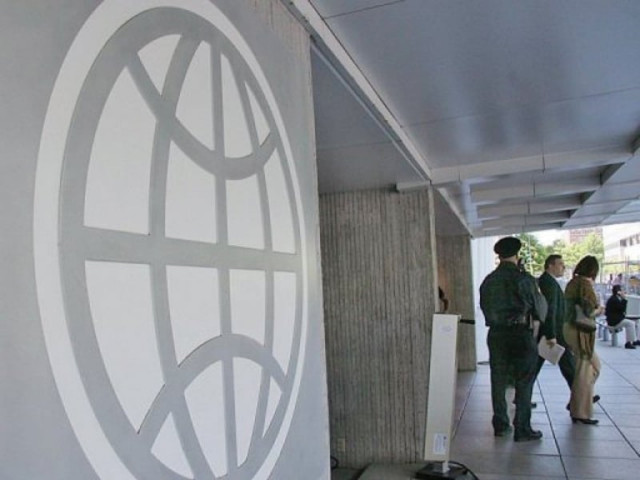World Bank report warns Pakistan of ‘substantial’ fiscal risks
Cites sovereign guarantees against CPEC, rise in spending ahead of 2018 polls as sources of risk

PHOTO: AFP
Sovereign guarantees against the $46 billion China-Pakistan Economic Corridor (CPEC) investment and a likelihood of ramping up spending ahead of the next general elections could carry substantial fiscal risks for Pakistan, warned the World Bank (WB) on Thursday.
In its latest report titled Global Economic Prospects 2016, the Washington-based global lender has highlighted challenges and opportunities that CPEC offers to Pakistan. “Sovereign guarantees associated with CPEC could pose substantial fiscal risks over the medium term,” it noted.
World Bank approves $35m loan to Pakistan for Indus River Basin

State Bank of Pakistan (SBP) Governor Ashraf Wathra, and former finance minister Dr Hafiz Pasha have also expressed similar views about the implications of the CPEC investment on Pakistan’s external and fiscal accounts.
Wathra had said there was a need to divulge more details on debt and investment portions of CPEC, stressing the need for more transparency on part of the government. Pasha had projected that loans contracted under CPEC will push the country’s total external debt to $90 billion.
Commenting on the WB report, Pasha said Pakistan can offset the impact of the loans by increasing its exports by at least 50% in the next three to four years. He added that the game-changing project has financial implications for the country that have to be highlighted for better management of debt.
Forex: Reserves down 1.78% week-on-week
However, the government remains unable to give a well-thought out strategic trade framework, particularly at a time when exports are nose-diving. The last framework expired in June last year.
WB also warned that the hard won fiscal consolidation gains may be lost if spending ramps up in the period ahead of the 2018 elections.
The lender highlighted the opportunities for Pakistan in the next few years. It argued that over the near to medium term, the country stands to benefit from rising investments from China under CPEC, the return of Iran to the international economic community and persistently low international oil prices.
CPEC investment is estimated at around $45 billion until 2030. This includes $11 billion mostly public investment and $33 billion private investment in energy projects. The government has to give sovereign guarantees against the private investment including payments against power produced by the plants set up under CPEC.
WB said stronger growth and investment in Pakistan is predicated on reforms to strengthen the business climate, an improvement in the security situation, implementation of CPEC and an associated easing in energy constraints. It warned that these developments might not materialise as expected.
The lender noted that macroeconomic adjustment in Pakistan under an International Monetary Fund programme was progressing, while efforts to crack down on violent crime in Karachi are supporting investor confidence. It said CPEC agreement has further bolstered investor optimism, and, if implemented, has the potential to lift long-term growth.
Pakistan can be richer with rapid urbanisation: report
WB cautioned that fiscal deficits and public debt levels remain high. It said the debt-to-GDP ratio at 65% was high, which was the result of years of fiscal slippages. It said recently industrial activity has slowed in India and Pakistan, while external trade remains weak.
The global lender also highlighted challenges that the South Asia region faces in intra-regional trade. As a share of GDP, intra-regional exports are smaller than anywhere in the world, it noted. On average, India, Pakistan, Sri Lanka and Bangladesh’s exports to each other amount to less than 2% of total exports.
Average trade costs between country pairs in South Asia are 85% higher than between country pairs in East Asia, reflecting border barriers, poor infrastructure and transport connectivity, and generally poor business environments.
Published in The Express Tribune, January 8th, 2016.



















COMMENTS
Comments are moderated and generally will be posted if they are on-topic and not abusive.
For more information, please see our Comments FAQ